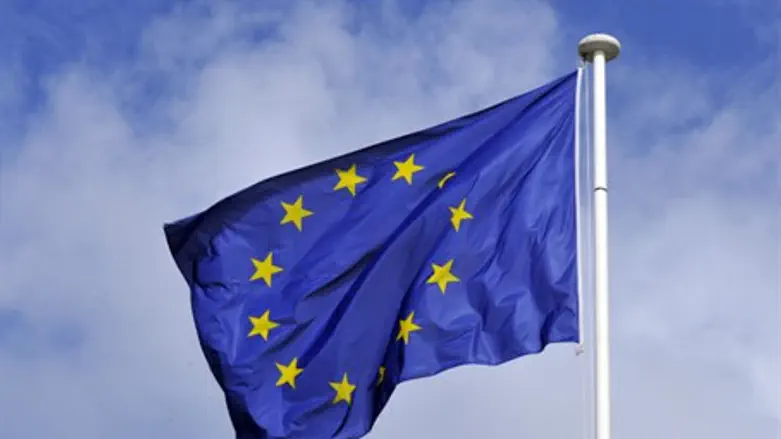
Last week a delegation from Israel attended a special symposium held at the European Parliament to call attention to the recent European Commission notice ordering EU states to demand that special labels be put on Israeli products coming from Judea and Samaria, “East” Jerusalem, and the Golan Heights.
Bar Ilan University Law Professor Avi Bell, was a member of that symposium and was one of the people who made the case for Israel against the labeling rules.
“I explained to the the symposium about why this move is illegal under international law,” Bell told Arutz Sheva.
“The move discriminates against the products of only one country, namely Israel, and is therefore considered illegal by the rules set down in the World Trade Organization treaties.”
The EU has a parliament and an executive. The Parliament did not issue the ban, rather the executive did. Israel therefore went to make its claim in front of the European Parliament at a special symposium held for the discussion.
Bell explained that the European Commission avoided bringing its ruling to a vote by claiming that the issue is simply a matter of enforcing existing legislation protecting consumers from “false labels.”
“The commission passed the ruling as an interpretive notice and therefore, they claim, it is a binding interpretation of existing law that all EU states must follow.”
Neither the countries of Europe, nor the European parliament voted on the measure.
When asked what Israel could do to defeat the ruling if it is illegal, Bell explained that there is one place the Israel could attack it, the World Trade Organization (WTO). “The WTO has a mechanism for dispute resolution, and if a state files a complaint with them there is a whole process that would entail a review of the issue and allow for penalties to be placed upon the EU.”
“If the WTO rules that this [labeling measure] is illegal, then it can order the EU to revoke it. If it is not revoked, then Israel would be allowed to take steps to penalize the EU. What those steps are we would only know at the end of the process.”
Israel has not yet taken the issue to the level of the dispute resolutions of the WTO. According to Bell “the government is still examining its options and it has not decided yet as to which action to take.”
Bell said that the response to the symposium was a mixed one. “The members of the European Parliament who were there appreciated it, but more important were the members who were not there. I'm not sure that they have even considered the illegality of the motion and there were many who did not attend the symposium.”
Currently the EU is Israel's most important trading partner. According to Bell the EU Commission plans more sanctions against Israel. “This is not the last one and I'm not sure where it will end.”
“There are trade treaties between Israel and the EU that protect Israel’s rights and Israel has to stand up for those rights. But there are also parts of the relations between Israel and Europe that are not covered by any treaty and there the EU can be as mean as it wants to be. And it wants to be mean.”
“To put it differently, diplomatic relations between Israel and the EU will get worse, and they will get worse because the European Commission wants them to get worse.”